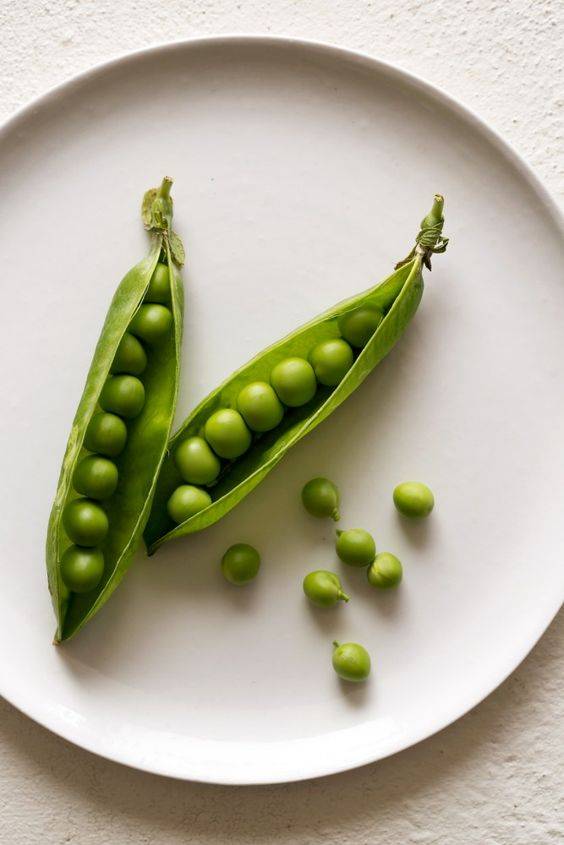what’s the deal with pea protein?
by team nuut

The magic ingredient in your favourite protein powder
Remember those green, mushy little orbs your mum made you eat as a kid? Well, it turns out she really does know best!
Small but mighty, green peas are one of the most power-packed veggie protein sources around. Nutrient-dense, they boast a complete amino acid profile and about 10 grams of protein per cup which are why, when it came to formulating nuut protein powder right here in Perth, organic pea power was our first protein fuel of choice.
Pea Power!
Peas, the seed of the pod fruit pisum sativum, is a member of the legume family and one of the few non-bean legumes.
Peas are an excellent source of fibre, vitamin K, manganese, folate, copper, and phosphorus. They're also a good source of vitamins B6 and B2, niacin, molybdenum, zinc, protein, magnesium, iron, potassium, and choline.
When they’re ripe, we call them green peas and consume them like fresh vegetables, and when dry, they are used similarly to lentils. They're also harvested at this stage and are commonly known as split peas. Pea protein is an extract from split peas and is ideal for powering up smoothies made from vegan protein powders like nuut.
Why Do I Need Protein?
Protein, one of the body’s most abundant compounds, is responsible for everything, from building tissue for glossy hair to repairing muscle and body tissues.
Protein is a nutrient and building block of food, made up of amino acids and easily digestible protein derived from yellow peas.
The recommended dietary allowance of protein for an adult is about 0.8 grams per kilogram of their body weight, and a little more if you are very active.
Just one cup of yellow peas contains around 8 grams of protein, yet one scoop of vegan protein powder can include between 15 and 20 grams of protein for every 100 calories. nuut is right up there too. Our Perth protein powder contains a whopping 13.3g of pea protein!
Because peas are made up of amino acids, they help the body function properly. Without consuming enough, it’s impossible to regulate our metabolism and maintain and repair body tissues. So pea protein packs a powerful punch, particularly as a vegan protein powder.
Pea Protein Is A Good Fit For Everyone
The growing interest in vegetarian and plant-based diets has boosted pea protein's popularity worldwide. Pea protein offers a healthy option for those who dislike consuming red meat. It is also the perfect option for lactose-intolerant people who cannot consume dairy-based protein.
Pea protein is also ideal for those following the keto diet plan. Especially popular in Australia, nuut vegan protein powder ensures that even on a keto diet plan, you can confidently fit enough protein into your day – whether you are vegan, vegetarian or a carnivore.
Pea Protein = Happy Gut
According to the University of Michigan, peas are great for those who struggle with allergies. While dairy is an excellent source of protein, many people have allergies to lactose, casein, and other compounds in milk. Pea protein does not contain allergens like peanuts, tree nuts, eggs, fish, shellfish, cow's milk, wheat and soy, so it is the perfect solution as it is simple to digest and gentle on the stomach. Peas are also much lower in some compounds found in other legumes that can cause digestive upset, and it has most of its fibre removed, so ghastly bloating or gas is as unlikely.
Protein and Exercise
When we exercise, our muscles suffer minute damage, and protein helps them recover, making them stronger than before. Without protein, muscle mass deteriorates, resulting in poor body tone, dry hair, brittle nails and dehydrated skin.
Pea protein contains an excellent amino acid profile and is super easy to digest. It is also the perfect alternative to whey protein which makes it ideal if you hope to gain muscle but follow a plant-based diet.
A study by Sports revealed that pea and whey protein can have similar results in physical performance, endurance and strength, proving that pea protein is a fantastic plant-based protein source for athletes.
When combined with rice protein, plant protein has an amino acid profile that is just as effective as animal proteins. Peas have similar levels of branched-chain amino acids that make and repair muscle fibres, making them the go-to for sporty types who follow a vegetarian or vegan diet.
Women and Protein
When it comes to women and protein, choosing a natural source is critical for optimising health and beauty benefits. Many women suffer from bloating, often caused by poor-quality protein powders that are difficult to digest due to an allergy or irritation to a specific ingredient.
Pea protein is perfect for avoiding bloat because it is not derived from common allergenic foods like milk, eggs, peanuts, tree nuts, soy, fish, shellfish, and wheat. It contains a complete array of amino acids, including three essential amino acids called branched-chain amino acids (bcaas), which means it's easily digestible, so no more bloat!
Because women generally eat less protein than men, especially if they are working out, taking a protein powder with lower carbohydrates is perfect for muscle recovery after training. Similar to whey, pea protein increases satiety. By helping you stay full for longer. It is also ideal if they follow a particular eating style like intermittent fasting, paleo or a keto diet plan.
During pregnancy, women should increase their daily protein quota. Experts recommend that between 75 to 100 grams are most beneficial for the developing foetal tissue and the enlarging placental, breasts, and blood supply. You should check with your doctor about your specific protein needs.